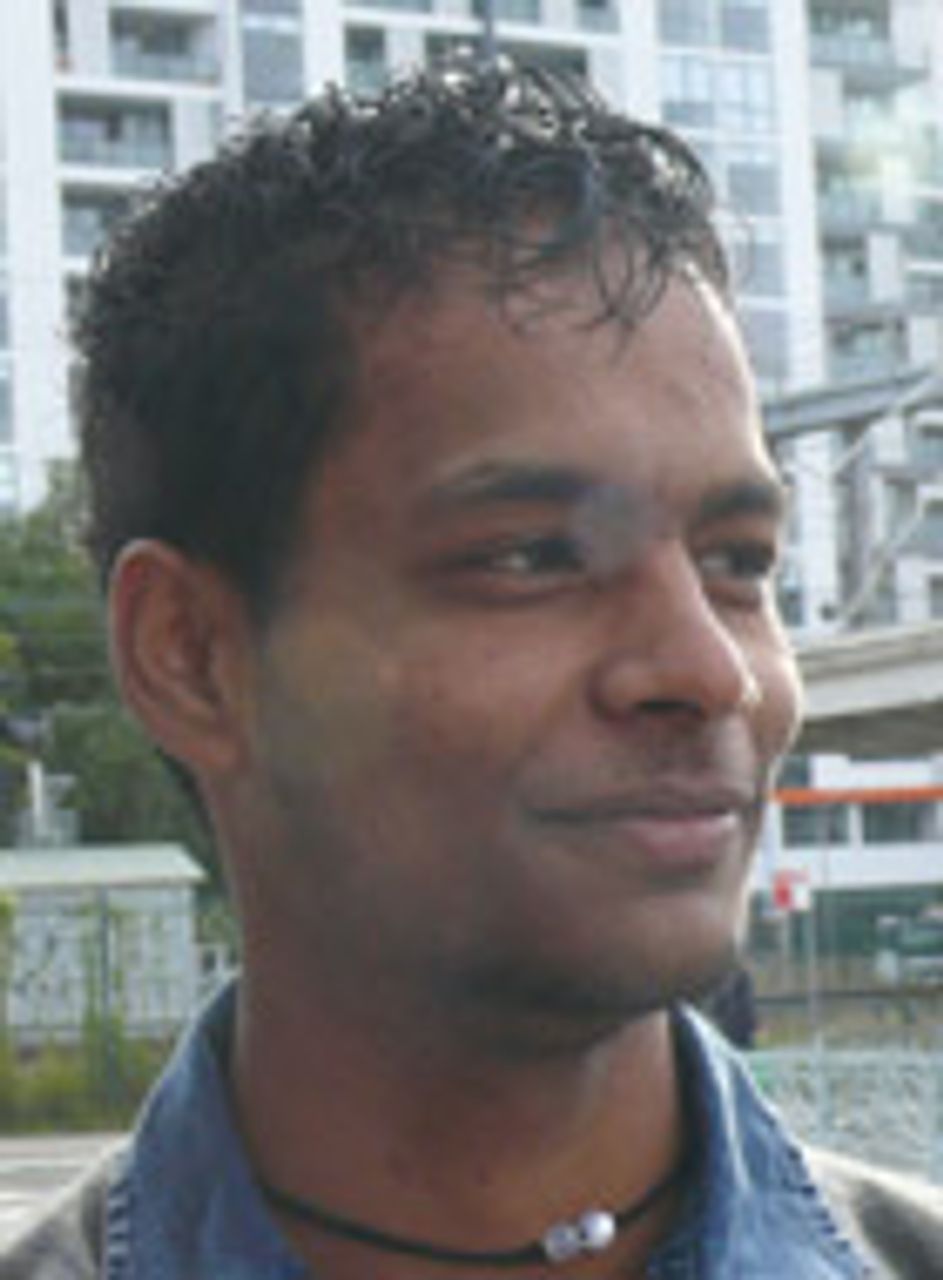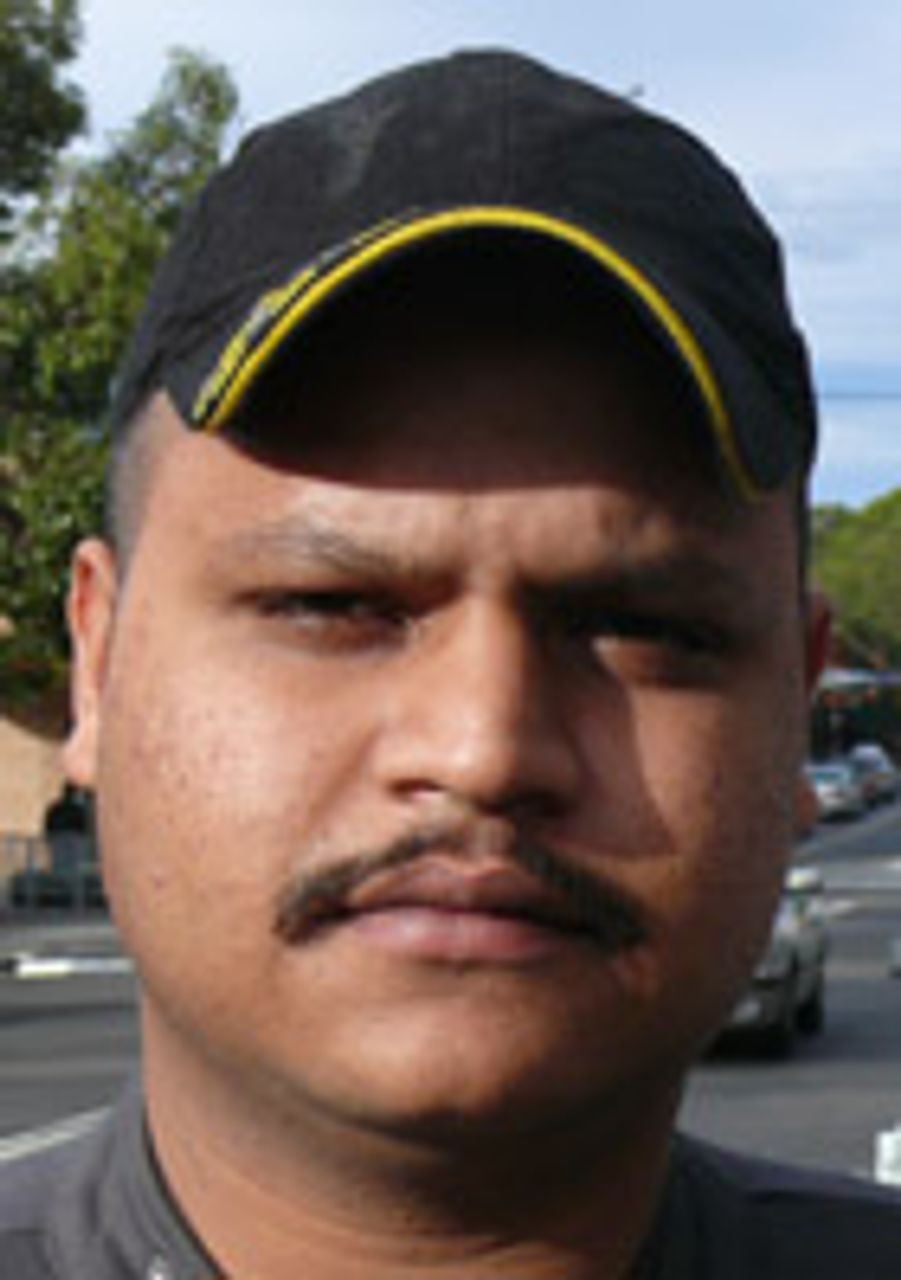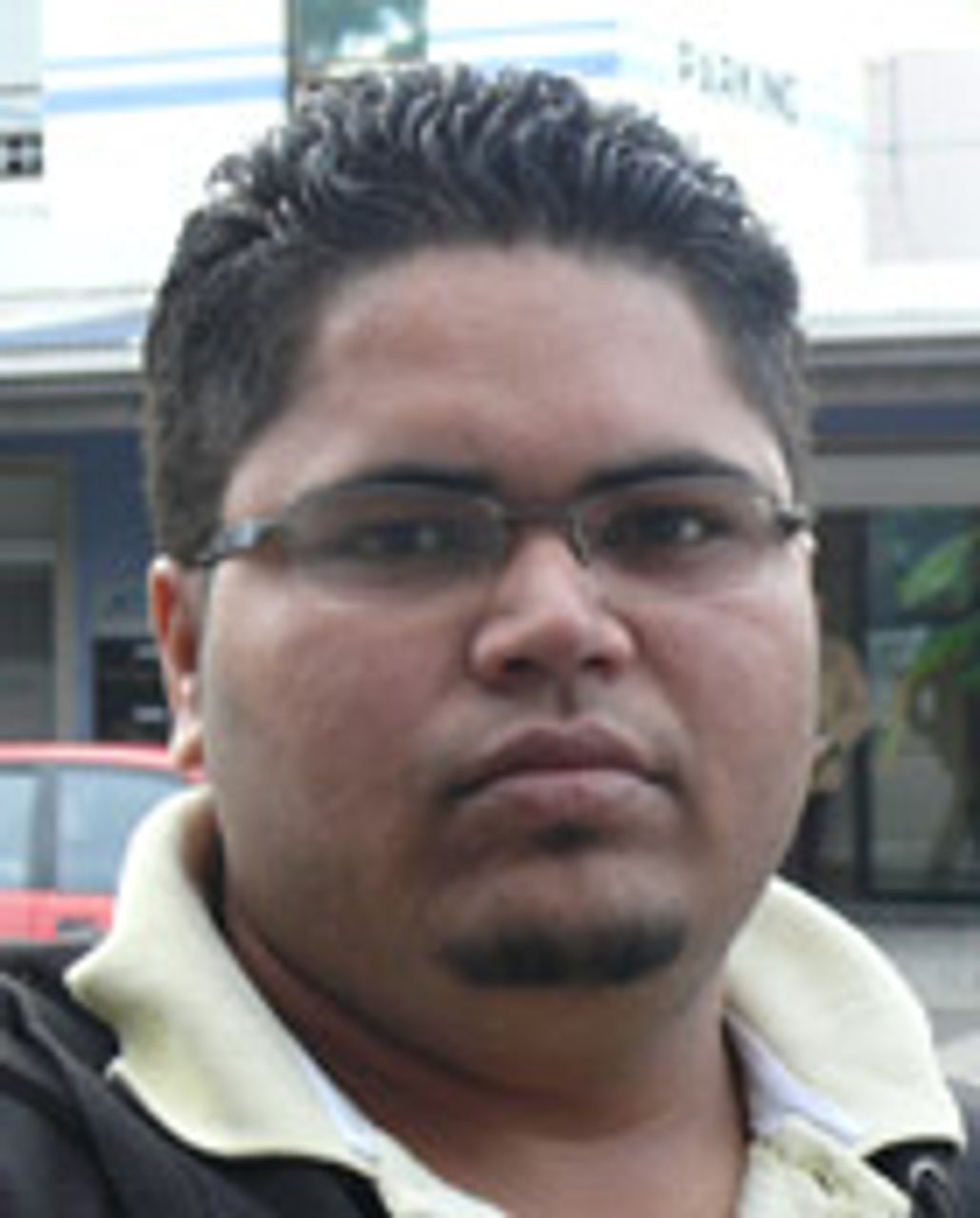Protests by Indian students studying in Australia that erupted in Melbourne on May 31 have spread to Sydney over recent days. On Sunday, hundreds of Indian youth marched through Sydney’s central business district demanding protection in the face of escalating racist attacks. Two nights of protest have followed in the working class suburb of Harris Park in Sydney’s inner-west, where large numbers of Indian students live.
Today, Prime Minister Kevin Rudd attacked the students themselves, branding their attempts at self-defence as “vigilante attacks”. In a thinly disguised appeal to racist sentiment, reminiscent of the dog whistle politics employed by the previous Howard government, Rudd spoke on Melbourne’s radio 3AW earlier today, saying it was time to “restore some balance in this debate.”
Rudd told 3AW that Australians had been victims of crime when visiting India. “In the last decade, I was advised we had, I think, up to 20 Australians who had either been murdered or had various forms of assault committed against them. That is not the result of Australians being targeted in India, that’s just a fact of violence in cities around the world.”
Rudd’s statement is little short of incitement to further racist attacks against Indian students. According to the prime minister, racist attacks against foreign nationals must be accepted as “a fact” of life.
The plight of Indian students studying in Australia has provoked deep concern and anger across India. Overnight Indian Prime Minister Manmohan Singh felt compelled to refer to the issue in India’s parliament. “He (Rudd) has assured me that any racist attack against Indian students will be sternly dealt with,” Singh declared.
The ongoing protests have highlighted the exploitative conditions confronting hundreds of thousands of international students. The Hawke Labor government introduced full fees for overseas students during the late 1980s—a racist and divisive policy that paved the way for the introduction of the Higher Education Contribution Scheme and full fees for up to 25 percent of domestic students. The international student market is now the country’s third largest export earner, worth $15.5 billion a year.
At Sunday’s rally, students denounced their treatment as “cash cows”. While forking out tens of thousands of dollars in fees and living expenses each year, they confront government inaction over a spate of violent attacks that have left dozens of them seriously injured and many fearing for their lives.
Ruchir Punjabi, president of the University of Sydney Union, told demonstrators: “The issues for international students have been building up for a while—safety, accommodation, transport, discrimination at work.”
International students are denied even the miserly living allowance available to some domestic students. As a result, many work late hours in convenience stores, petrol stations or fast-food outlets to cover their rent and food. While glossy brochures and slick advertising promise Indian students a “first class” educational experience, there is neither adequate accommodation nor other support for them on arrival.
The Rudd Labor government has been aware of student safety issues for well over a year. The hasty reassurances now being offered to Indian government officials by Rudd, Education Minister Julia Gillard and Minister for Foreign Affairs Stephen Smith are completely hollow. Their professions of concern are motivated solely by fears that Australia’s image is being irreparably tarnished, jeopardising a multi-billion dollar industry.
National Union of Students (NUS) president David Barrow told Sunday’s rally that Indian students faced systematic discrimination, including by unscrupulous landlords and employers. “The only fair education system is one that is fair for local and international students.” But Barrow’s words, like those of Rudd and Gillard, are equally empty. The NUS, which functions as little more than a training ground for aspiring Labor politicians, has never opposed full fees for overseas students, nor has it waged any campaign to defend international students from exploitation.
Police violence
Last night, for the second night in a row, hundreds of Indian students rallied in Harris Park, condemning police and the federal Labor government. The protest began after Indian students were attacked by Lebanese youth and the students accused police of blatant inaction. According to locals, attacks on Indian students began two years ago and have been escalating in recent months.
On Monday night angry students chanted, “We want justice”, “Sydney police, shame, shame” and “Sydney police, useless”. They occupied the main shopping street and sat down at the central intersection. The police response was provocative. More than 30 police with dogs formed a cordon around the protest, and aggressively prevented other people, including local residents, from joining the demonstration. At one point a police officer menaced a group of Indian youth with a dog, ordering them to move to the far end of the street.
Ajah, a 22-year-old hospitality management graduate working in a convenience store, said: “There is going to be big, big trouble and it could lead to riots because the police and the government are doing nothing to stop the violence. I came here as a student to better my future, not to make trouble.”
Ajah explained that foreign students were vulnerable to late-night street attack. “We have come here to study and we have to work at night time. And most of the students are here by themselves, without their families to protect them. When we are attacked, the police do nothing; they say they can’t do anything.
“The police treat us like this because they think we are not citizens. But we have left our countries to come here to study, and we pay for that, and we work here. That is the only reason why the government lets us come to Australia, because they need us. But the government does nothing for us.”
Harris Park is home to large numbers of Indian students who are drawn by lower rental costs and the sense of security afforded by the many Indian stores and restaurants in the area. But Sydney’s western suburbs are ravaged by high—and rapidly growing—youth unemployment and associated problems of drug abuse and crime.
That the social tensions produced by these conditions have taken the form of racist attacks on Indian students is no accident. It is the outcome of a political climate deliberately fostered by successive Labor and Liberal governments, which have sought to divert social anger in a reactionary direction—scapegoating immigrants for unemployment and other social problems produced by their own “free market” policies.
In the past year the Rudd government has deliberately appealed to racist sentiment, boosting funding to the former Howard government’s “border protection” regime, and announcing large cuts to the migration intake on the basis that this will protect “Australian jobs”.
In reality, young people in the working class suburbs of Sydney and Melbourne—including domestic and overseas students—face a common social plight. Discussing the impact of the global economic crisis, Ajah said: “The problem is that there are no jobs—30 to 40 percent of the foreign students can’t get jobs either. It is hard to find work because of the economic downturn.
“You have to work for $9 an hour to get work. I don’t know why the government doesn’t stop that as well. The employers know that students have to work at night time, and so they take advantage of us. They say: ‘We’ll only give you this job, and if you don’t want it, just go’. So what are you going to do? If you leave it, next time he will say: ‘Now I won’t pay you $9, it’s $8 now’.
“The students know they can’t find other work because of the economic situation and also they don’t know the work rules. After being out of work for one month, or three months or a year, they take any job, without even reading the terms and conditions. Then the employer knows that he can do what he wants.”
 Mandeep
MandeepMandeep Singh, 21, is studying Hospitality Management at a private college on the outskirts of Sydney’s CBD. He had been attacked by youths the previous night. “Living here without parents is very hard. Working by yourself, paying the rent by yourself, it’s very expensive. Our parents spent money for us to come here so that we will have a good future. We didn’t come here for fighting. We came here for studies.”
“I work in McDonalds at night, finishing at 11 or 12 and arriving here at about 1 a.m. by train to Harris Park. It’s too hard. Going to my house is big trouble because people in the car are following me. It’s a problem to me, a problem to my family and a problem to my community. My family is calling me every night and saying, ‘It’s not good, come back to India’”.
 Rahul
RahulRahul, 25, also studying Hospitality Management, said he was aware of attempts to blame immigrants and overseas students for unemployment in Australia. He rejected this as “divide and rule” and warned that attacks on Lebanese youth by the major parties were producing a “vicious cycle” of racism. “Unemployment is a problem for the whole world. Recession is going on here, even in India and America also. That is not a problem of a single country it is a problem of the whole world, so there is no reason to blame any one single community.”
“A lot of big multinational companies are investing in India. Everything is in India, offices, a lot of call centres. All of the companies—Vodafone, Apple, major banks—are all taking their calls from India. Last year I was working for Citibank’s call centre in India. But now they are saying ‘there are no jobs for India’. ‘It’s a recession, we cannot pay you.’ So we have to leave our jobs. People are losing their jobs in India. I was getting around $600 a month. If you are working in Australia or somewhere else in the world you may get $600 a week. Some are losing their job and find another job but with lower wages than the place they were getting earlier. If they were getting 10,000 rupees, another company is now hiring them for 5,000 rupees.”
While Indian students have called for greater police protection against racist violence, the response of police to their plight underscores the fact that this demand is a complete dead-end. On Monday night after Indian students went to the local police station to lodge a formal complaint, police demanded they leave the station on threat of violence.
 Harry
HarryAccording to Harry, a student from India who completed his studies in Hospitality Management last year, “When we went to the station, the police said ‘f--- off, get out of the station.’ They told us ‘go from here or else we will shoot you.’ When we made a video of that, they broke that video and that mobile cost us a lot of money—$1,200. They don’t want their rude behaviour on the video so that’s why they broke the mobile.”
The fundamental democratic rights of students to live free from harassment and fear cannot be safeguarded by the police or any other section of the capitalist state. Nor can students defend their rights by retaliatory attacks on “Lebanese youth” or on youth of any other nationality.
The only way to defend the rights of all students is through a common political struggle based on a socialist perspective—uniting students, unemployed youth and working people of all nationalities—against the source of social inequality, social tensions and racial divisions: the capitalist profit system itself.
Receive news and information on the fight against layoffs and budget cuts, and for the right to free, high-quality public education for all.
